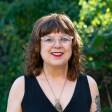Intuitive Healing Arts Speakers
You've got an audience hungry for substance, connection, and something deeper than soundbites.
But finding the right intuitive healing arts speakers? That can feel like guessing in the dark.
Do you go with someone who's all energy work? A mindfulness teacher? A mix of both?
What even counts as a good intuitive healing arts speaker for your kind of event?
This page clears that up. Whether you're planning a wellness summit, recording your next podcast season, or curating a speaker lineup for a spiritual event, you'll find people here who bring presence, clarity, and real-world resonance.
Intuitive healing arts speakers blend inner work with practical insight.
They speak on energy healing, somatic practices, intuitive growth, and emotional wellness-and they know how to engage a room or a mic.
I've seen how the right guest can completely shift the energy of a conversation.
You want someone who gets it. Someone grounded, articulate, and insightful. These speakers do just that.
Take a look at this lineup of intuitive healing arts speakers and see who feels like the right fit-or go ahead and book someone today.
Top Intuitive Healing Arts Speakers List for 2026
Dr. Tanya English
Transforming grief into joy through music and intuitive healing
Christi Clemons Hoffman
Helping You Navigate Life with Wisdom and Higher Awareness
Patricia Wagner
Channeling divine insights to elevate your energy and purpose
Carole Demarest
Guiding you to clarity and calm through intuitive healing.
Amber Kelly
Unlocking intuition and healing, one session at a time
Holly Walker
Energy Shifter, Uplifter, Healing Facilitator
Jennifer Urezzio
Unlocking Success Through Soul Language: Your Path to Clarity.
Eva Vennari
World Renowned Healer, Eva Vennari is an international speaker, bestselling author, Founder of The Elevate Institute.
What Makes a Great Intuitive Healing Arts Speaker
Take someone like Caroline Myss or Dr. Joe Dispenza. They don't just share knowledge-they embody it. Their stories are lived, not borrowed. That authenticity is magnetic. When a speaker shares a personal transformation or a client breakthrough with vulnerability and clarity, it creates trust. And trust is the currency of transformation.
But it's not just about being spiritual. The best intuitive healing arts speakers are also skilled communicators. They know how to pace their delivery, when to pause, how to use silence as powerfully as words. They can translate complex energetic concepts into language that resonates with both skeptics and believers.
Another key trait? Adaptability. Whether they're speaking at a wellness summit in Bali or a virtual event hosted in Kansas, they know how to read the room-energetically and emotionally. They shift tone, examples, and even their language to meet the audience where they are.
Ultimately, a great intuitive healing arts speaker doesn't just inform-they shift something in you. You leave their talk feeling different, even if you can't quite explain why. That's the magic of it.
How to Select the Best Intuitive Healing Arts Speaker for Your Show
1. Define Your Audience's Needs.
- Are they beginners curious about energy work, or seasoned practitioners?
- Do they lean more science-based or spiritually open?
- This will help you filter for speakers who speak their language.
2. Identify the Speaker's Core Modality.
- Some focus on Reiki, others on somatic healing, intuitive coaching, or ancestral work.
- Make sure their specialty aligns with your event's theme or your audience's interests.
3. Review Their Talks and Testimonials.
- Watch full-length talks, not just highlight reels.
- Look for audience engagement, clarity, and whether they offer actionable takeaways.
- Read reviews from past hosts-especially those on platforms like Talks.co, where hosts and guests are matched based on relevance and resonance.
4. Check Their Digital Presence.
- Do they have a speaker page with a clear bio, topics, and past appearances?
- Are they active on platforms like Instagram, YouTube, or LinkedIn?
- A strong online presence often signals professionalism and reach.
5. Reach Out with a Clear Ask.
- Be specific about your audience, format, and expectations.
- Ask how they tailor their message to different groups.
- Gauge their responsiveness and enthusiasm-these are good indicators of how they'll show up for your event.
Bonus Tip: Use Talks.co to browse vetted intuitive healing arts speakers. You can filter by topic, availability, and even audience fit, making the selection process smoother and more strategic.
How to Book a Intuitive Healing Arts Speaker
1. Start with Research.
- Use platforms like Talks.co to browse speaker profiles.
- Look for speakers with experience in your event format (e.g. virtual summits, podcasts, retreats).
- Check their availability and speaking topics.
2. Reach Out with a Personalized Message.
- Mention why you think they're a good fit.
- Share details like your audience size, event theme, and format.
- Be clear about the date, time zone, and expectations (e.g. live Q&A, slides, length of talk).
3. Confirm the Logistics.
- Lock in the time and date.
- Send a calendar invite with all relevant links and instructions.
- If it's a paid gig, clarify payment terms and method.
4. Prep Together.
- Schedule a short pre-event call to align on tone and flow.
- Share your audience demographics and any key themes to highlight.
- Ask if they need any tech support or materials from your side.
5. Promote the Appearance.
- Share their bio and headshot on your event page.
- Tag them in social media posts to build buzz.
- Encourage them to share the event with their audience too.
6. Follow Up Post-Event.
- Send a thank-you note and any recordings or feedback.
- If it went well, consider inviting them back or referring them to other hosts.
Pro Tip: Talks.co makes this whole process easier by streamlining communication, scheduling, and even payment-all in one place.
Common Questions on Intuitive Healing Arts Speakers
What is a intuitive healing arts speaker
Unlike traditional health or wellness speakers, intuitive healing arts speakers focus on the unseen: energy fields, emotional resonance, spiritual alignment, and intuitive guidance. They may speak on topics like chakra balancing, energy medicine, somatic release, or intuitive development.
What sets them apart is their ability to translate subtle, often abstract concepts into relatable, impactful messages. Whether they're guiding a corporate team through breathwork or leading a virtual summit on ancestral healing, their goal is to help people access deeper layers of self-awareness and transformation.
These speakers often come from diverse backgrounds-some are trained therapists who integrate intuition into their work, while others are lifelong energy workers or spiritual teachers. Their talks can range from deeply experiential (like live energy clearings) to educational (like explaining how trauma is stored in the body).
In short, an intuitive healing arts speaker is a bridge between the energetic and the practical, helping audiences reconnect with themselves in ways that are both profound and accessible.
Why is a intuitive healing arts speaker important
These speakers offer more than facts or frameworks. They offer presence. In a world overloaded with data and strategies, intuitive healing arts speakers bring a different kind of value: embodied wisdom. They guide audiences into feeling, not just thinking. And that's often where real transformation begins.
In corporate wellness programs, for instance, these speakers can introduce mindfulness and emotional intelligence in ways that resonate with both executives and entry-level staff. In community health events, they can demystify energy healing practices for people who've never heard of Reiki or somatic therapy.
They're also important because they normalize conversations around intuition, trauma, and spiritual growth. By speaking openly about their own journeys or client experiences, they create safe spaces for others to explore their own healing paths.
Finally, intuitive healing arts speakers help bridge the gap between traditional wellness and emerging holistic practices. They're often the first point of contact for someone curious about energy work or inner healing. And that initial spark can lead to deeper exploration, personal breakthroughs, and even lifestyle changes.
What do intuitive healing arts speakers do
- Educate on Holistic Modalities. They explain practices like Reiki, breathwork, intuitive coaching, or sound healing in ways that are accessible and engaging.
- Share Personal and Client-Based Stories. These stories help audiences connect emotionally and see what's possible through healing work.
- Lead Experiential Activities. Many incorporate live meditations, energy clearings, or somatic exercises into their talks to create a felt experience.
- Translate the Intangible. They make abstract concepts like 'energetic alignment' or 'soul contracts' understandable for both newbies and seasoned practitioners.
- Adapt to Diverse Audiences. Whether speaking at a startup's wellness week or a spiritual retreat in Sedona, they tailor their message to the context and culture of the audience.
- Inspire Self-Inquiry and Action. Their talks often leave people asking deeper questions about their lives, relationships, and purpose-and provide tools to explore those questions.
In essence, intuitive healing arts speakers are educators, guides, and catalysts. They don't just inform-they activate. And that activation can ripple out into real change for individuals, teams, and communities.
How to become a intuitive healing arts speaker
1. Define Your Niche and Message.
- Are you focused on energy healing, chakra alignment, sound therapy, or something else? Get specific.
- Clarify your core message. What transformation do you help people achieve?
2. Develop Your Speaking Skills.
- Join local speaking clubs like Toastmasters or take online courses.
- Practice storytelling, pacing, and audience engagement.
- Record yourself and review your delivery.
3. Build Your Credibility.
- Get certified in your healing modality (Reiki, Ayurveda, etc.) if applicable.
- Publish articles, host webinars, or start a podcast.
- Collect testimonials from clients or event organizers.
4. Create a Speaker Page.
- Use platforms like Talks.co to showcase your profile, topics, and past talks.
- Include a professional bio, high-quality headshot, and demo video.
5. Network with Event Hosts and Communities.
- Reach out to wellness summits, spiritual expos, and online event platforms.
- Use Talks.co to connect with hosts looking for speakers in the healing arts.
- Attend virtual networking events to meet collaborators and organizers.
6. Start Speaking - Anywhere.
- Offer free talks to yoga studios, wellness podcasts, or Facebook groups.
- Record these sessions to build your portfolio.
- Gradually move into paid opportunities as your reputation grows.
7. Refine and Scale.
- Gather feedback after each talk.
- Expand your reach by offering online courses or group coaching.
- Consider publishing a book or launching a signature program.
Remember, it's not about being perfect. It's about being authentic, aligned, and clear in your purpose.
What do you need to be a intuitive healing arts speaker
Foundational Knowledge and Training
You should have a solid understanding of the healing modalities you speak about. Whether it's Reiki, crystal healing, breathwork, or intuitive coaching, formal training or certification lends credibility. Many speakers also have backgrounds in psychology, energy work, or somatic therapy.
Authentic Voice and Storytelling Skills
Your personal journey often becomes your most powerful tool. Being able to articulate your transformation or the breakthroughs you've witnessed in others helps audiences connect. Storytelling is key here. Practice weaving your message into relatable narratives.
Speaking and Presentation Skills
You don't have to be a TEDx-level speaker to start, but you do need to be able to hold attention. That means knowing how to structure a talk, engage an audience, and deliver with clarity. Platforms like Talks.co can help you get discovered and booked, but your presentation must be strong.
A Digital Presence
In today's world, your online presence is your business card. Build a speaker page with your bio, topics, testimonials, and a demo video. Use social media to share insights and connect with your audience. A simple website or a Talks.co profile can go a long way.
Connection to Community and Hosts
You'll need to network with event organizers, podcast hosts, and wellness communities. Many intuitive healing arts speakers start by offering free talks or collaborating on summits. Being active in online groups or directories helps you stay visible.
So while intuition is your compass, structure is your map. Combine both, and you're on your way to becoming a compelling speaker in the healing arts space.
Do intuitive healing arts speakers get paid
The Range of Compensation
- Free Talks: Many new speakers start with unpaid gigs to build credibility and collect testimonials.
- Honorariums: Small wellness events or spiritual expos may offer $100 to $500 per session.
- Paid Keynotes: Established speakers can earn $1,000 to $10,000+ per talk, especially at retreats, conferences, or corporate wellness events.
- Virtual Summits: Some online events offer revenue-sharing models or flat fees.
Pros
- Speaking can lead to high-ticket coaching clients or course sales.
- You build authority and visibility in your niche.
- Travel and accommodations are often covered for in-person events.
Cons
- Payment isn't always guaranteed, especially for smaller or spiritual events.
- You may need to negotiate or educate organizers on your value.
- Some platforms prioritize exposure over compensation.
Industry Trends
- According to SpeakerHub and Talks.co data, wellness and spirituality events are increasingly monetizing, with more organizers budgeting for expert speakers.
- Hybrid events are growing, offering more paid opportunities globally.
So yes, intuitive healing arts speakers do get paid, but it's often a mix of direct fees and indirect monetization (like product sales or client acquisition).
How do intuitive healing arts speakers make money
1. Speaking Fees
- Paid keynotes at wellness conferences, spiritual retreats, or corporate mindfulness events.
- Honorariums from yoga studios, holistic expos, or online summits.
2. Product and Course Sales
- Many speakers offer digital courses on intuition, energy healing, or self-care.
- Some sell physical products like oracle decks, healing crystals, or books.
3. Coaching and Consulting
- One-on-one intuitive coaching or group programs.
- Business consulting for other healers or spiritual entrepreneurs.
4. Affiliate Marketing
- Recommending tools, books, or platforms (like meditation apps or healing gear) and earning commissions.
5. Membership Communities
- Monthly subscription-based communities where members get exclusive content, live sessions, or group healing.
6. Licensing and Syndication
- Licensing their talks or meditations to wellness apps or platforms.
- Syndicating content to YouTube, Insight Timer, or podcast networks.
7. Virtual Events and Collaborations
- Hosting their own summits or co-hosting with others via platforms like Zoom.
- Charging for access or offering VIP upgrades.
This multi-channel approach allows speakers to diversify income and reduce reliance on one-off gigs. The most successful intuitive healing arts speakers often blend spiritual authenticity with entrepreneurial strategy.
How much do intuitive healing arts speakers make
Entry-Level Speakers
- Typically earn $0 to $500 per talk.
- Often speak for free to build a portfolio or gain exposure.
Mid-Level Speakers
- Earn between $500 and $2,500 per event.
- May supplement with coaching, online courses, or product sales.
Top-Tier Speakers
- Can command $5,000 to $20,000+ per keynote.
- Often have published books, large followings, or media exposure.
Annual Income Estimates
| Speaker Type | Talks/Year | Avg Fee | Other Income | Total Estimate |
|---|---|---|---|---|
| Beginner | 10 | $200 | $2,000 | $4,000 |
| Mid-Level | 25 | $1,000 | $10,000 | $35,000 |
| Established Expert | 40 | $5,000 | $50,000 | $250,000 |
- Niche Demand: Topics like trauma healing or corporate mindfulness may pay more.
- Audience Size: Larger followings often lead to higher fees.
- Geography: Speakers in the US, UK, and Australia tend to earn more than those in smaller markets.
So while some intuitive healing arts speakers treat it as a side hustle, others build six-figure businesses by combining speaking with digital products, coaching, and community offerings.
How much do intuitive healing arts speakers cost
Typical Fee Ranges
- Beginner Speakers: $0 to $500 per talk. Often speak for free at local events or online summits.
- Mid-Level Speakers: $500 to $2,500. These speakers usually have a solid portfolio, a Talks.co profile, and some media exposure.
- Top-Tier Speakers: $3,000 to $10,000+. These are published authors or influencers with a strong following and proven results.
Factors That Influence Cost
- Event Type: Corporate wellness events typically pay more than grassroots spiritual festivals.
- Duration: A 20-minute keynote costs less than a full-day workshop.
- Travel and Logistics: In-person events may require covering flights, hotels, and per diems.
- Customization: Tailored content or audience-specific workshops often come at a premium.
Virtual vs. In-Person
- Virtual talks are often 30-50% cheaper.
- Some speakers offer bundled pricing for multiple sessions or hybrid events.
Negotiation Tips for Organizers
- Offer value beyond money: audience exposure, professional video, or future bookings.
- Use platforms like Talks.co to compare speaker rates and packages.
In short, the cost of hiring an intuitive healing arts speaker depends on what you're looking for: a transformational experience, a practical workshop, or a high-profile keynote.
Who are the best intuitive healing arts speakers ever
1. Caroline Myss
- Author of 'Anatomy of the Spirit'.
- Known for her deep insights into energy medicine and medical intuition.
2. Louise Hay
- Founder of Hay House Publishing.
- Pioneered the mind-body connection with books like 'You Can Heal Your Life'.
3. Dr. Judith Orloff
- Psychiatrist and intuitive healer.
- Blends science with intuition in talks on emotional freedom and empathy.
4. Deepak Chopra
- While more broadly known, his work often touches on intuition and energy.
- Has spoken globally about consciousness and healing.
5. Donna Eden
- Creator of Eden Energy Medicine.
- Known for her dynamic stage presence and practical healing techniques.
6. Sonia Choquette
- Spiritual teacher and intuitive guide.
- Focuses on awakening the sixth sense and living intuitively.
7. Teal Swan
- Controversial but influential speaker on emotional healing and shadow work.
- Known for her raw, direct delivery and large online following.
8. Gregg Braden
- Bridges science and spirituality.
- Talks often include intuitive intelligence and healing frequencies.
These speakers have inspired millions and helped bring intuitive healing into mainstream conversations. Their legacies continue to influence new generations of healers and speakers.
Who are the best intuitive healing arts speakers in the world
1. Rebecca Campbell (UK)
- Author of 'Light is the New Black'.
- Known for her soulful talks on intuition, divine feminine, and spiritual awakening.
2. Lee Harris (USA/UK)
- Energy intuitive and channeler.
- Hosts popular monthly energy updates and speaks at global events.
3. Shaman Durek (USA/Norway)
- Modern shaman and author of 'Spirit Hacking'.
- Combines ancient wisdom with modern spirituality in high-energy talks.
4. Lalah Delia (USA)
- Wellness educator and founder of Vibrate Higher Daily.
- Speaks on energetic alignment, healing, and self-empowerment.
5. Kyle Gray (Scotland)
- Angel communicator and author.
- Known for his accessible, grounded approach to spiritual topics.
6. Sah D'Simone (Brazil/USA)
- Spiritual guide and meditation teacher.
- Combines intuitive healing with breathwork, dance, and joy-based practices.
7. Mona Delfino (USA)
- Medical intuitive and energy healer.
- Focuses on the intersection of science and spirituality.
8. Anita Moorjani (Hong Kong/USA)
- Near-death experience survivor and author of 'Dying to Be Me'.
- Shares transformational insights on healing and intuition.
9. Dr. Joe Dispenza (USA)
- Though primarily known for neuroscience, his talks often explore intuitive healing and quantum energy.
10. Alyson Charles (USA)
- Known as 'The RockStar Shaman'.
- Blends pop culture with ancient wisdom in her dynamic presentations.
These speakers are not only thought leaders but also community builders, content creators, and global influencers in the intuitive healing space.
Common myths about intuitive healing arts speakers
1. They're not 'real' professionals.
Many assume intuitive healing arts speakers are hobbyists or spiritual enthusiasts without formal training. That's just not true. Many of them have certifications in energy medicine, somatic therapy, or trauma-informed coaching. Some even hold degrees in psychology or integrative health. For example, Dr. Judith Orloff, a psychiatrist and intuitive healer, bridges clinical science with intuition in her talks. Her work is cited in both medical and wellness communities.
2. They only speak at spiritual or wellness events.
This is a narrow view. While intuitive healing arts speakers are common at retreats and holistic expos, they're also being invited to corporate wellness programs, leadership summits, and even tech conferences. Companies like Google and SAP have hosted mindfulness and energy-based workshops to support employee well-being. The demand for emotional intelligence and energetic alignment is growing across industries.
3. They rely solely on 'woo-woo' language.
Not all intuitive speakers talk about chakras and auras. Many blend intuitive practices with neuroscience, psychology, and practical frameworks. Think of speakers who combine HeartMath techniques with data on HRV (heart rate variability), or those who use intuitive listening to support executive coaching. The language is often adapted to the audience, making it accessible and grounded.
4. You have to be born with a 'gift' to become one.
While some intuitive speakers describe early sensitivity, many develop their skills through practice, mentorship, and study. Intuition is like a muscle. It can be trained. Programs like the Barbara Brennan School of Healing or the Intuition Medicine Academy offer structured paths. So no, you don't need to be born with a crystal ball.
5. They're not impactful speakers.
This one's just flat-out wrong. Intuitive healing arts speakers often create deeply transformational experiences. Their talks can shift energy in a room, help people access clarity, or even catalyze major life decisions. Their impact might not always be quantifiable in charts, but it's felt. And in today's burnout-heavy world, that's more relevant than ever.
Case studies of successful intuitive healing arts speakers
Take Lee Harris, for example. He started as an energy intuitive and musician. His early days involved small group sessions and live channeled messages. But over time, he built a global brand. His YouTube channel now reaches hundreds of thousands, and his live events sell out across continents. What made him stand out? He combined intuitive insights with practical emotional tools, and he wasn't afraid to be vulnerable on stage.
Then there's Anita Moorjani. After a near-death experience, she began speaking about the intersection of intuition, healing, and self-love. Her TEDx talk went viral, and she became a bestselling author. But what's often overlooked is how she tailored her message for different audiences-from spiritual seekers to medical professionals. She didn't water down her story, but she did learn how to frame it for impact.
In a different lane, there's Kute Blackson. While he doesn't always use the label 'intuitive healing arts speaker', his work blends spiritual insight, motivational speaking, and personal transformation. His talks at A-Fest and Mindvalley events are a masterclass in energetic presence. He uses storytelling, silence, and audience interaction to create emotional resonance.
And let's not forget regional voices. In South Africa, speakers like Nokulinda Mkhize bring ancestral wisdom and intuitive guidance into modern business and community spaces. She's not just speaking-she's reclaiming cultural narratives and making them relevant for today's challenges.
What ties these speakers together isn't just intuition. It's clarity, consistency, and the courage to speak from a place that's deeply personal. They've built trust with audiences by showing up authentically, whether online, on stage, or in intimate workshops.
Future trends for intuitive healing arts speakers
One major trend: corporate integration. Companies are no longer just hiring motivational speakers. They're bringing in intuitive facilitators to lead sessions on emotional regulation, energy management, and conscious leadership. Think of it as the evolution of the wellness perk. Instead of just offering yoga classes, firms are inviting speakers who can help teams align energetically and communicate more authentically.
Another shift is in hybrid delivery models. Post-2020, virtual summits and online workshops exploded. But now, audiences want more than Zoom fatigue. Intuitive healing arts speakers are experimenting with immersive digital experiences-think guided energy sessions with real-time biofeedback or interactive storytelling that blends intuition with neuroscience. Platforms like Mighty Networks and Circle are becoming popular for community-based learning.
We're also seeing a rise in intersectional voices. Speakers who blend intuition with activism, ancestral healing, or decolonized frameworks are gaining traction. This is especially true in regions like Latin America, Southeast Asia, and parts of Africa, where traditional healing practices are being reclaimed and recontextualized for modern audiences.
Here are a few key trends to watch:
- Data-meets-intuition: More speakers are integrating heart rate variability, brainwave tracking, or somatic feedback into their sessions.
- Micro-communities: Instead of massive audiences, speakers are cultivating smaller, high-trust groups for deeper transformation.
- AI-assisted content: Some are using AI tools to analyze audience energy patterns or tailor intuitive content in real time.
- Cross-industry speaking: From fintech to education, intuitive speakers are being invited to share insights on empathy, presence, and inner alignment.
The future isn't about fitting into old speaker molds. It's about creating new ones-ones that honor both the unseen and the strategic.
Tools and resources for aspiring intuitive healing arts speakers
1. Talks.co. This podcast guest matching tool is a goldmine for intuitive speakers. You can pitch yourself to aligned shows, build your audience, and practice articulating your message in a conversational format. Tip: Use keywords like 'energy healing', 'conscious leadership', or 'spiritual wellness' to find the right matches.
2. Insight Timer. While primarily a meditation app, Insight Timer also allows teachers and speakers to host live sessions. It's a great way to test your content, build a following, and get feedback in real time. Bonus: The global audience is already open to intuitive and healing-based content.
3. Zoom Events. Hosting your own virtual workshops? Zoom Events lets you create branded, ticketed experiences. You can offer energy healing sessions, intuitive coaching demos, or mini-retreats. Pro tip: Pair it with Stripe for seamless payments.
4. Kajabi. Want to package your talks into courses or memberships? Kajabi is a robust platform for building your speaker business. You can host recordings, sell digital products, and even create email funnels to nurture your audience.
5. The Speaker Lab. While not specific to intuitive speakers, this platform offers solid training on positioning, pricing, and pitching. Their podcast and blog are especially helpful for understanding the business side of speaking.
6. HeartMath Institute. If you're looking to blend intuition with science, HeartMath offers research-backed tools and certifications on emotional regulation and coherence. Their frameworks are respected in both corporate and wellness circles.
7. Canva. Don't underestimate the power of visuals. Use Canva to create speaker decks, social media graphics, and event promos. Their templates are easy to customize and help you look pro, even if design isn't your thing.
8. Eventbrite. For in-person or hybrid events, Eventbrite helps you manage RSVPs, ticketing, and promotion. It's especially useful if you're running your own workshops or retreats.
Whether you're just finding your voice or scaling your reach, these tools can help you stay organized, visible, and aligned with your mission.









